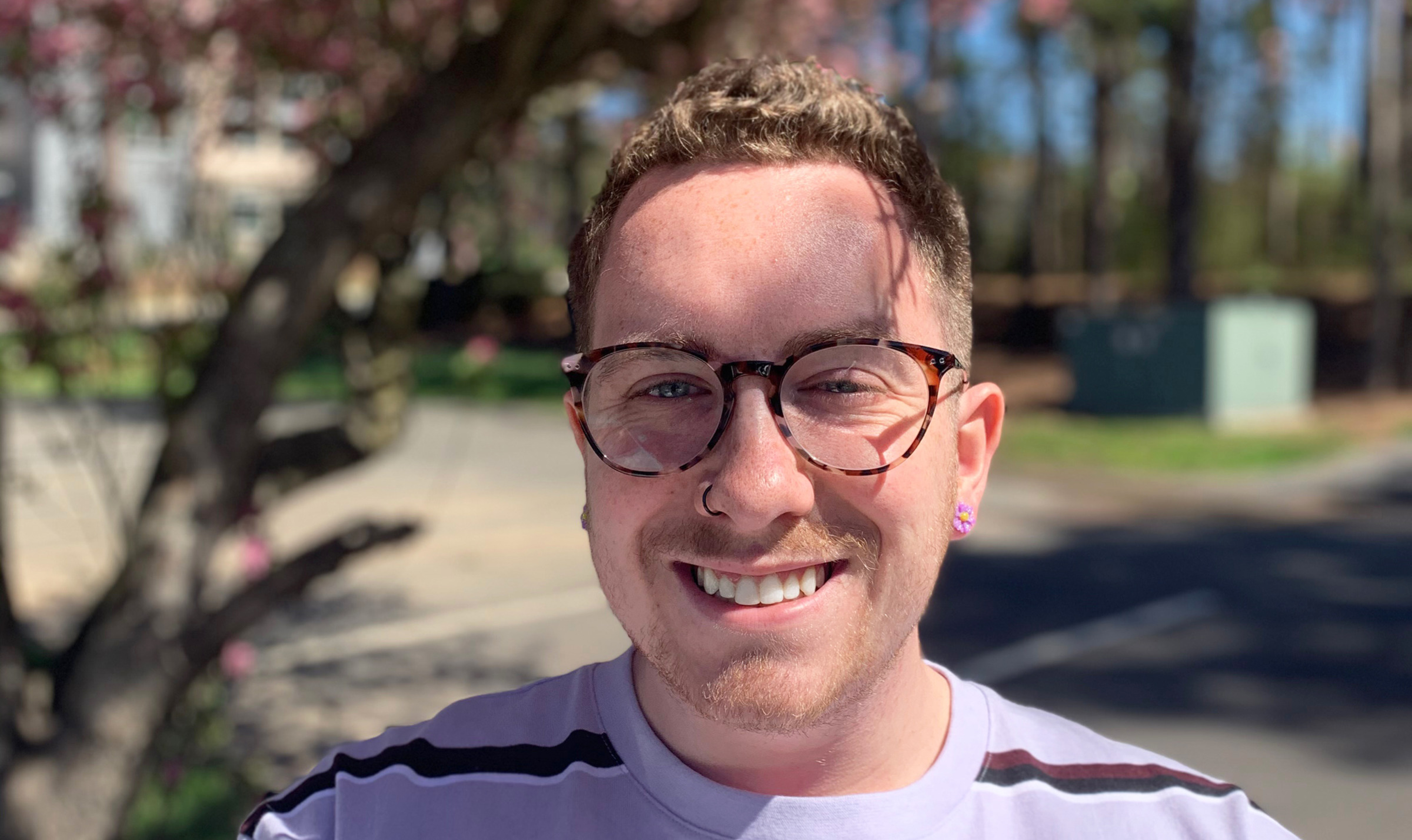As an undergraduate majoring in sociology at Appalachian State University, Victor Boles devoted his studies and undergraduate research to homophobic bullying in middle school. He said the longitudinal effects on mental health and on young adulthood demanded a systemic lens to ultimately help students.
That need to examine schools through a systemic lens and a commitment to social justice drew Boles to the UNC School of Education and its rigorous, year-long school counseling program.
“The American School Counselor Association says that counselors should be systemic agents of change,” said Boles, a 2021 Master of Education in School Counseling graduate. “That’s something that I really ascribe to my work and in my life even outside of counseling.”
Boles took that approach into his school counseling internship at a Title I elementary school in Durham. He joined the trauma-informed leadership team and the equity team to advocate for the most marginalized students, and he drew from his lived experiences and undergraduate research to better understand school climate and teacher attitudes toward gender and sexual identity.
For that work, Boles (’21 M.Ed.) was named a recipient of the School’s Galassi-Brown Award, which recognizes students who promote social and educational justice and demonstrates exceptional advocacy for the students they serve, the schools where they work, and the school counseling profession.
Creating foundations
Boles, who is gay, grew up in a low-income, single-parent household, at times homeless and food insecure, in a conservative, western North Carolina county he reservedly called “not very welcoming.”
He was bullied in middle school for his sexuality. No one stepped in to help.
“The teachers knew [about the bullying],” he said. “My counselors knew. People knew, and they didn’t do anything about it.
“So I said, ‘Maybe I want to work within schools and be the person I wish I would have had.’ I wanted to help students and families in ways that I wish that I could have had, so that’s really what drew me to the counseling profession.”
Based on his undergraduate research, he assumed when it came time to choose a school level for his counseling internship that he would select middle school. The program’s summer coursework and the theoretical frameworks he was learning nudged him toward elementary school.
“The summer [courses] were really eye-opening,” he said. “What I love about elementary school counseling is that there is such a foundation for a student’s trajectory. It affects how they end up in middle school, how they’re going to emphasize school in their life. It’s very proactive.”
After arriving at his internship, Boles said that he began to hear stories of student experiences that indicated narrow gender views on the part of school staff members.
“Obviously, students don’t understand what terms like gender norms mean, but one boy told me that he liked the color pink, and his teacher told him he couldn’t like that color,” Boles said. “And one girl didn’t want to wear a dress to a school dance, but that was the dress code for girls at this dance.”
As part of Black History Month, some staff members wanted to highlight the importance of transgender lives and how those people affected change in their communities. But some staff refused to teach about transgender people of color.
After conversations with the school’s equity team and aligning with a seminar course in applied investigations, Boles and fellow student Christine Smith developed a survey focused on the beliefs and practices of teachers around gender-expansive students at the school and on how teachers implement LGBTQ+ people into their curriculum.
“I had to get approval from our principal for sending out the survey,” he said. “Eventually, he allowed it, but some respondents noted [anonymously] that they were disappointed the administration allowed the survey to be sent out.”
Responses ranged in beliefs around gender expansiveness, and for the teachers who were accepting, some felt they couldn’t extend those values in the classroom.
While he was only able to collect information as the school year came to an end, Boles felt confident that he had left the school’s equity team with data that could inform future professional development opportunities and that could potentially inform new school or district policies — which would ultimately benefit students and their school experiences.
Looking to the future
Next fall, Boles will bring that same dedication to students and to social justice to a Wake County elementary school as one of two counselors serving some 900 students.
“I’m really excited to start there,” he said. “I’ll be working with kindergarten, first, and second grades, and the other counselor will be working with the other grades, which honestly I prefer because I love puppets.”
Boles plans to build strong foundations of his K-2 students with a snail puppet and voice he perfected over the past year.
“The kids loved it, and I’m excited to share that snail next year.”
